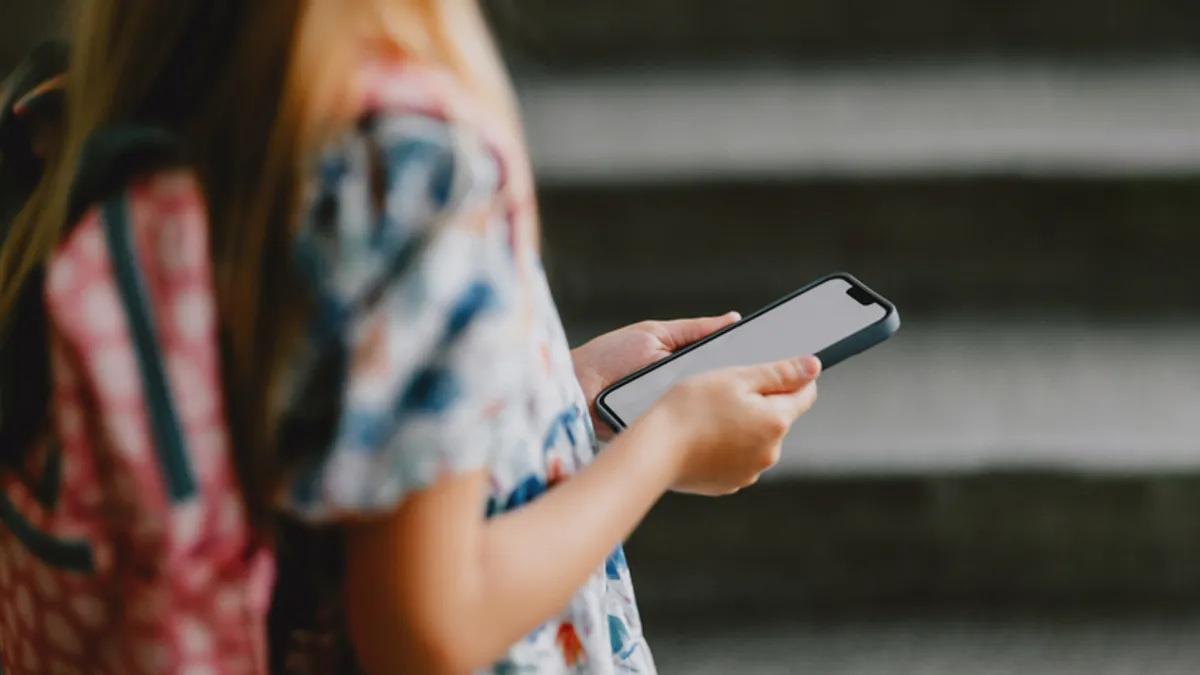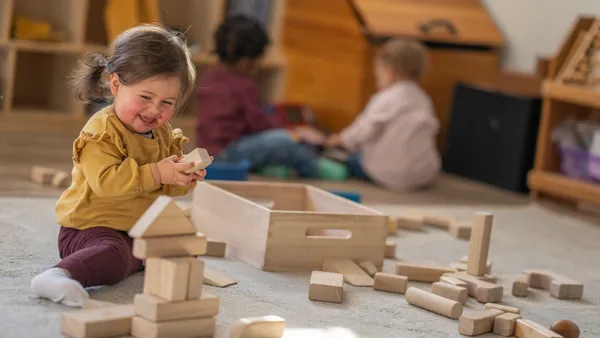Dive Brief:
- The U.S. Department of Education is urging schools, districts and states to adopt policies to guide students' use of cellphones and other personal devices, but the agency is not recommending specific actions educators should take, according to a resource released Tuesday.
- Rather, the Education Department recommends that policies are developed in consideration of local context and that policy decisions include input from parents, students, educators and administrators.
- The new resource comes as more states and school districts have been restricting students’ use of cellphones during the school day in response to concerns that the devices distract from schoolwork and hinder student mental health. But there has been opposition to these restrictions.
Dive Insight:
“In this digital age, every elementary, middle, and high school should have a clear, consistent, and research-informed policy to guide the use of phones and personal devices in school,” said U.S. Secretary of Education Miguel Cardona, in a statement.
Cardona said the 37-page resource supports education officials and local communities in developing policies that are "understandable and enforceable, and prioritize learning while ensuring student safety."
"Different school communities have different needs, and the nuances of this issue demand that local voices — parents, educators, and students — inform local decisions around the use of personal devices in school,” Cardona said.
The Education Department said the resource was developed in response to a May 2023 White House Fact Sheet announcing actions to protect youth mental health, safety, and privacy online.
The resource suggests that when communities collaborate with educators, families and students to create cellphone use polices, they address certain questions, including:
- When phone use is not permitted, where and how are phones stored?
- How do policies protect the rights of students, including students with disabilities, adhering to their individualized education plan?
- Are there other considerations for underserved students such as English language learners?
- How do policies vary with the ages of students?
- What training is provided for staff and students?
- How can school districts and schools assess whether policies are working and how to refine them?
The National Parents Union, a nonprofit that represents parents and families, said in a statement on Tuesday, "This new approach prioritizes students’ focus and learning during critical instructional time — while also acknowledging the real and valid concerns that parents have about maintaining lines of communication with their children and contact during emergency situations."
Survey results released in September from the National Parents Union found that 78% of parents polled want their children to have cellphone access during the school day in case there’s an emergency. The same survey found 71% of parents generally think their child’s school cellphone policy is “about right,” but only 30% say their child’s school solicited parent input on a cellphone policy.
A 2023 study by Common Sense Media found that 97% of 11- to 17-year-olds used their phones during the school day. The study, based on an analysis of the smartphone data of 200 students, revealed students who were using their phones during the school day most likely used social media (32%), YouTube (26%) and gaming (17%).







 Dive Awards
Dive Awards







